The world of every parent revolves around their baby. Along with the diet safety also plays a prominent role for the kids.
It is more crucial time for the parents to keep an eye on the babies above 6 months when they start the voluntary movements by crawling, or walking. At this age babies tend to touch the things that may be risky for them. There are some electrical safety tips to teach the kids to prevent them from injury or death.
Dangers of electricity for kids:
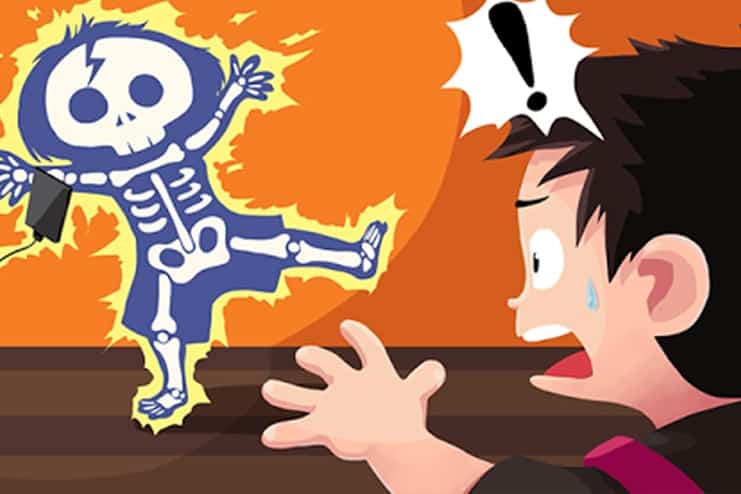
Kids will be very curious to touch the electrical things being unaware of the dangers of electricity. Even before you caution them with the safety tips, it is more important to teach them the hazards of the electricity.
• Electricity may lead to shocks, burns, and even to mortality in some cases.
• Power cords and appliances are as dangerous as the power lines.
• Muscles of the body tend to tighten up resulting in choking this may result in the breathing difficulty for kids
• Electrical shocks may interfere with the normal functioning of the heart constricting the blood vessels.
• Water is a good conductor of electricity. The body is a good conductor as well as it contains 70% of water.
Electrical Safety tips for kids:
It is more essential to teach the kids of all ages electrical safety tips. Your child should be aware of some safety tips. Here are a few electrical safety precautions for kids to teach.
1. At Home:
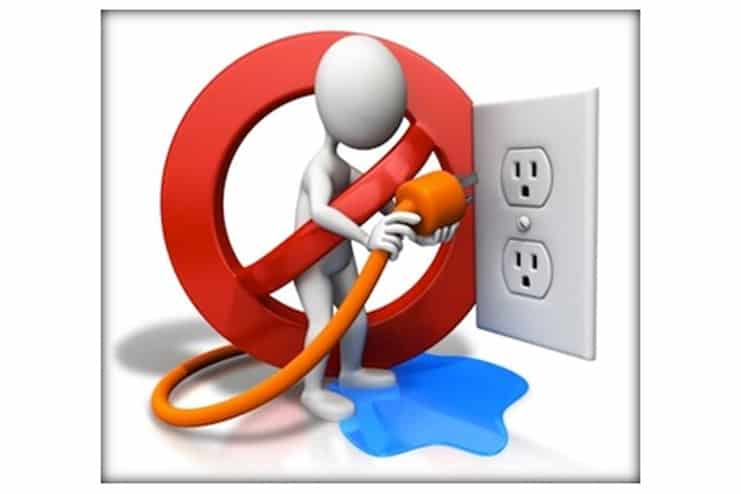
• Make sure to keep all the electrical wires and cords away from the gas or any other source of heat.
• Avoid switching on the electrical appliances and leaving them as it is in the presence of your kid.
• Make sure to keep the small objects out of the children’s reach as they tend to plug them into the sockets.
• Cover the open sockets that are in the reach of kids as they are likely to put their fingers in the outlets which is very dangerous
• Remove the wall outlets that are not in use.
• Apply tape over the plug holes and cord holders when they are not in use.
• Do not keep the appliances near the water resources including the bath tub, sink.
• Never use or touch the electrical appliances with the wet hands.
• Unplug the electrical appliance before you clean it.
2. Outdoor electrical safety:
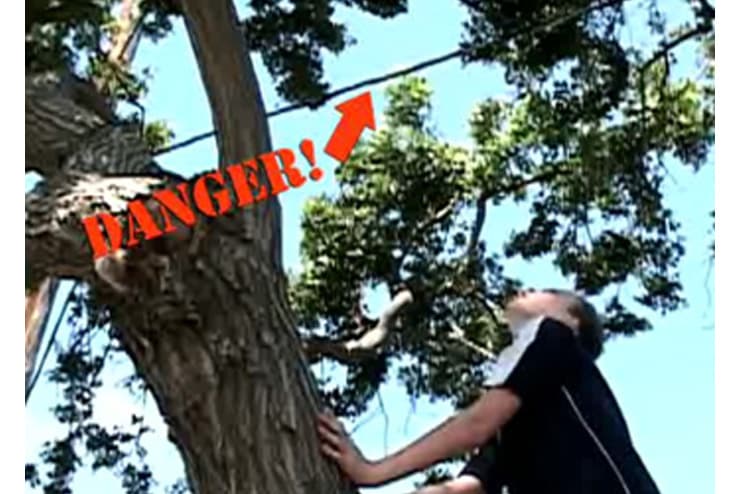
Here are a few electrical safety tips to teach your kids while they are outdoors:
• Ask them not to climb the trees that are closer to the power lines or the power lines passing over the tress.
• Ask your kids not go for swimming during the electrical storm
• Teach your kids not to climb the utility poles
• Ask your kids to play away from the electrical stations
• Ask them not to climb over the fences around the electrical stations
• Avoid your kid from touching a wire that is cut down
• Be very careful while carrying the things like ladder, pool skimmer that are at the risk of reaching the overhead electrical lines.
• Do not hang over or touch the sign boards over the utility poles
• Do not touch the electrical tools, appliances or electrical toys while you are in pool.
• Never throw any kind of objects onto the overhead power lines.
• Never try to touch the power lines with any object in your hand.
• Ask your kids not to play with the model airplanes or helicopters near the power lines.
3. Electrical safety tips with the appliances:
Electrical appliances from mixer, to the microwave oven are the integral part of any household. Follow some safety tips can help you to operate them in a safe mode when you have the little one in your home:
• The appliances that you buy should have the approval from the reputable consumer laboratory.
• Unplug the cords of the appliances from the socket when they are not in use and ensure to keep the cords away from the kids and pets.
• Appliances that generate heat like clocks, televisions, and computer monitors should be given some space for the proper air circulation and cooling.
• Don’t put on the wet clothes over the electrical appliances.
• While attempting for the repairs or updates follow the instructions mentioned on the appliances
• Don’t try to operate the electrical appliances with wet hands or while you are in water.
• Ensure to keep the electrical appliances away from the water source such as sinks, bath tubs, pools and place them away from the overhead vents.
• Keep the combustible materials like curtains, clothes, and toys away from the heat source including radiators, space heaters, and other heating vents.
4. Electrical safety tips with the Cords:
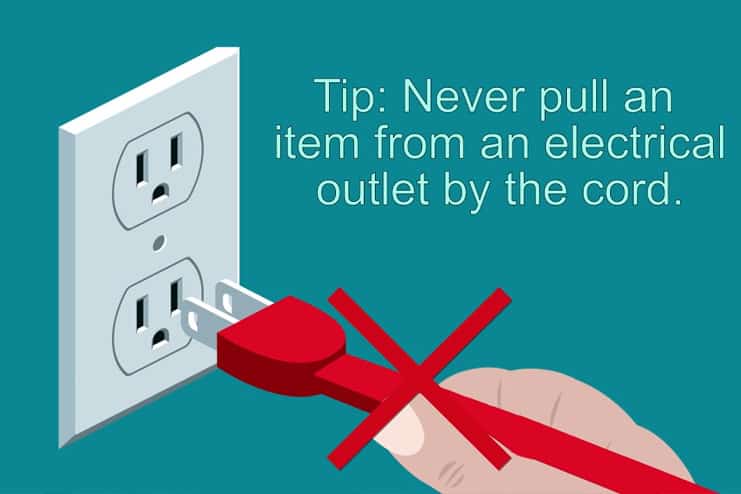
Electrical cords come with the every appliance and many use the extension cords to increase the range of the power outlets. Teach the kids the following cord safety tips for the safe operation:
• Check the cords for any cracks before every use.
• Teach your kids not to put the fingers and the other objects in the outlets.
• Never allow your kids to use the cords for any purpose other than their intended purpose.
• Ensure that the cord fits into the outlet firmly. If it is getting looser with the specific outlet choose the other for the safe operation.
• Don’t staple or nail them in order to keep in the position. If the cord is slipping from the where it is required to be then use the tape or the twist ties to secure it.\
• It is not safe to place the cords beneath the rugs.
• While using the extension cords teach your kids not to touch near the joints.
• Don’t allow your kids to unplug the card until they are older enough to know the hazards of the electricity.
• Place a cap over the unused outlets or when they are not in use.
5. Electrical safety tips with the outlets:
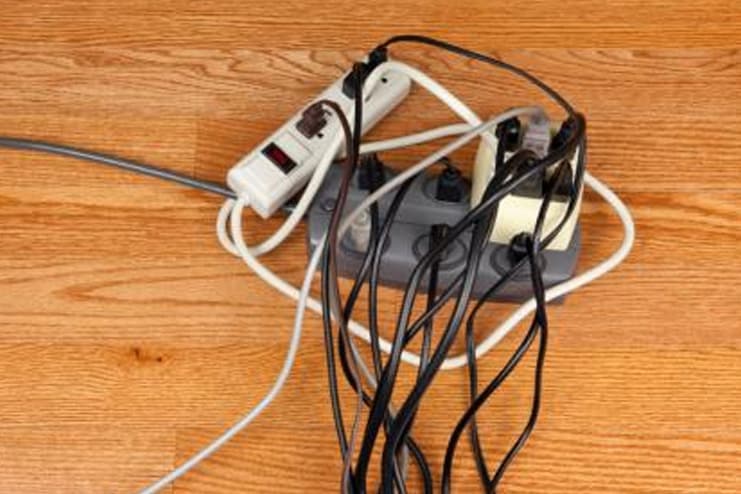
Every cord requires the appropriate outlet to fit into. Teach your older kids some safety tips while dealing with the outlets:
• Block the unused outlets with the tape or with childproof caps. This is one of the best tips to keep children safe around electricity.
• Never try to load the outlet with multiple cords, instead try to relocate the cords.
• Install the ground fault installers particularly near the potentially hazardous areas such as pools, crawl spaces, kitchens, bathrooms, and the unfinished basements.
• Ensure that outlets have the secure plates covering all the wires.
6. Electrical safety tips with the bulbs:
Light bulbs are the single most electrical fixtures in everyone’s home. Higher wattage bulb can cause the overheat to the fixture.
• Switch over to the more efficient compact fluorescent (CFL) bulb that can provide the light at the lower wattage level. If the CFL bulb breaks you should open all the windows and doors and ask the people to leave the room for just 15 minutes.
• Ensure the screw the bulb tightly in position. Any loose connection may lead to the sparks or shorts.
• Turn off the fixture completely before changing the bulb.
7. Electrical fire safety tips:
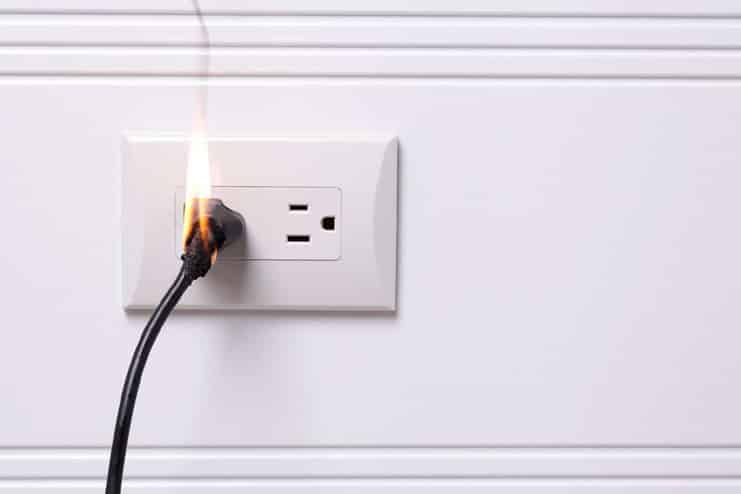
When an electrical spark or the short circuit happens, it is more essential to know what to do to put off the electrical fire before it causes the further damage by spreading. There are many causes of the electrical fires knowing them in advance can help to prevent them. Here are a few tips that you should know to protect your family:
• Do not allow your children to play in the proximity of the electrical appliances
• The electrical appliances that may put even a small shock can be dangerous and should be replaced immediately.
• Switches that are hot to touch should be replaced with the safe ones.
• Never try to perform any wiring and repairing without any prior knowledge.
• Ask your children not to put the water over the electrical wire.
How to teach children about electrical safety?

It is more important to talk to the kids about the electrical safety from the childhood.
Here are a few ways that you can make them aware of the hazards of the electricity:
1. Talk to the kids about how the electricity works:
Walk out to check for any power lines in your surroundings and teach your kids what the power company has done to it to make it safe. Take your kid around the home and demonstrate them how the power passes through the wire to the homes. Show them the functionality of the plugs and what happens when they put something into the outlets using some videos.
2. Demonstrate the kids that water makes the electricity more dangerous:
Teach your kids using some science projects the relationship between the water and electricity. Avoid them from touching the electrical appliance with the wet hands.
3. Conduct a family session:
Use a session to teach kids some electrical safety tips. As the kids grow, they start to use the things in a different manner so arrange some age specific sessions for them. Little awareness and education is enough to make your kids utilize the electricity in a safe manner.
4. Model the electrical safety rules:
There are many educational games available through which kids can understand the hazards of the electricity. Use story books to teach the little ones about the dangers caused by the electrical appliances especially when used in the absence of adults.
What to do when an electrical accident happens?
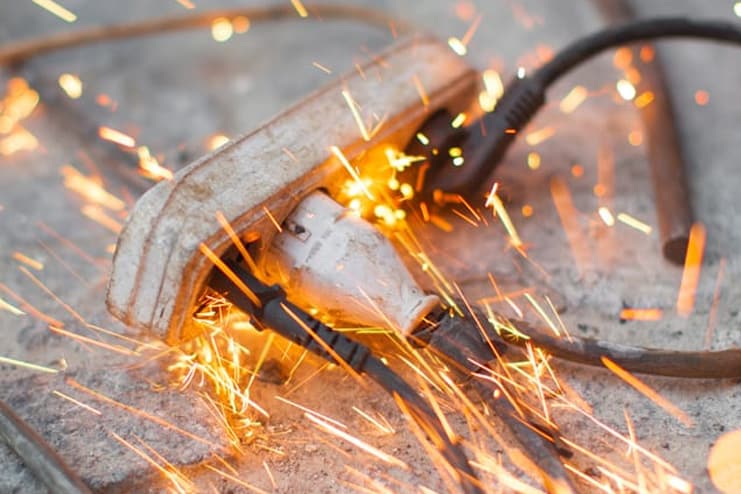
When the human body comes in direct contact with the source of electricity or the one that is carrying the electricity the body experiences the electrical shock. Depending on the voltage and the length of contact, shock may range from the minor discomfort to the severe injury. Teaching your kids beforehand electrical safety tips can prevent any hazards. If the electrical accident happens here are the things that you should do:
• Discard the power supply before you touch the injured child because, you may also get the shock. Pull out the plug from the socket or turn off the main
• If you have the lift the live wire from your child, never use the bare hands. Use the non-conductive items like rolled up newspaper, dried stick, thick cloth, or any other nonmetallic object.
• Try to move the child as little as possible as the electrical fracture might have caused the spinal fracture.
• Once the power source is off, run towards your child and check their breathing, alertness, and skin color. If you notice the absence of heartbeat or breathing, immediately start the CPR while someone is out for the medical help.
• Help your to prevent getting chilled
• Apply the banged over the burned areas.
Even if the kid seems to be more normal after the shock, it is more important to consult the doctor. Injuries incurred by the electrical shocks are not easy to see as the electricity burns the body from inside out. There is a possibility that the heartbeat and other internal organs may be affected several hours after the injury.
In conclusion, as electricity is used every day, it is very easy that kids and adults easily forget how danger the electricity is. Put your smart safety skills into practice to help kids prevent electrical fires and shocks.









































